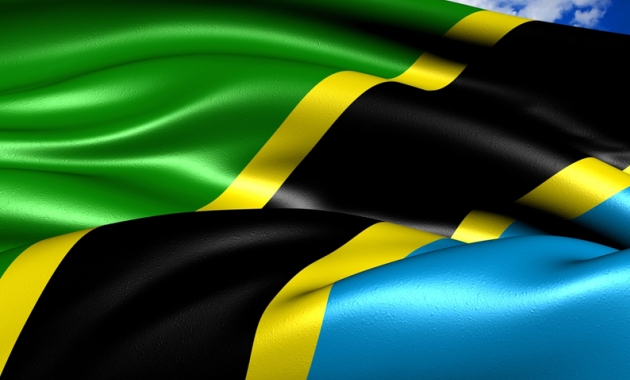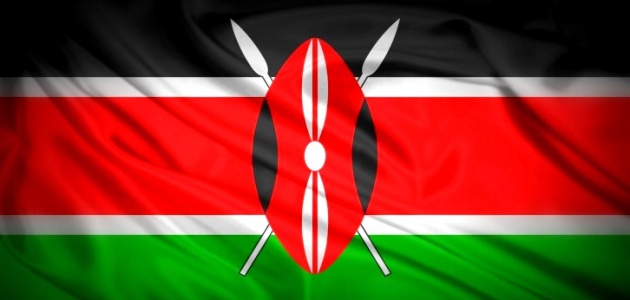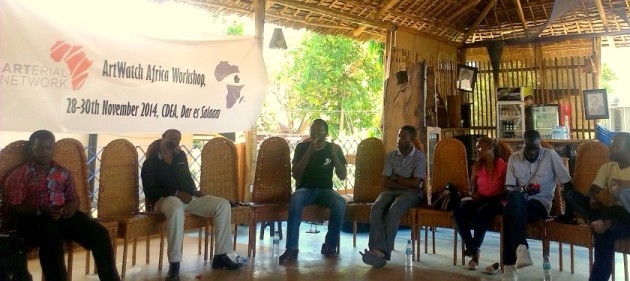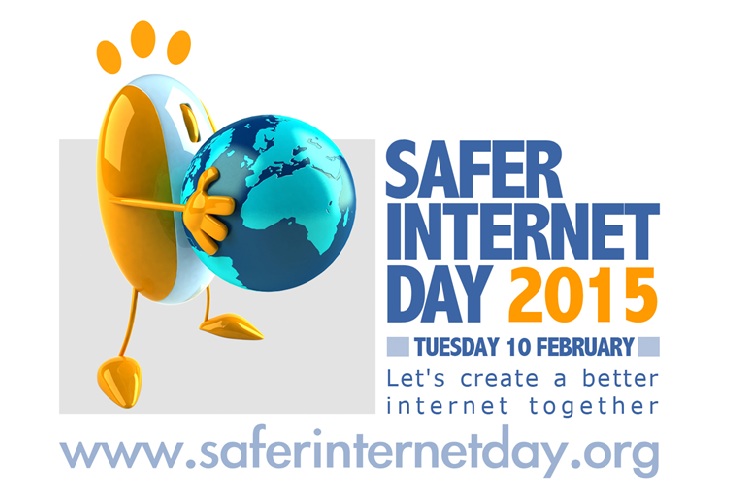By Juliet Nanfuka |
Tanzania has published a Cybercrime Bill that makes “provisions for criminalizing offences related to computer systems and Information Communication Technologies” and provides for investigation, collection, and use of electronic evidence.
However, the release of the Cybercrime Bill has been met with apprehension by the public due to its overt disregard for press freedom and freedom of expression, the excessive powers granted to police, and the limited protections afforded to ordinary citizens.
On social media, critics have suggested that the timing and content of the Bill were intended to control the media and bloggers ahead of the October 2015 elections. According to the 2014 State of Internet Freedom in Tanzania report, the process of making Cybercrime laws began in 2013 with proposals for the development of the Cyber security Act, Data Protection Act and the Electronic Transacting Act by the end of 2014.
Some of the problematic clauses in the Bill that affect freedom of expression and privacy include Sections 7, 8, 14, 16, 31, 32, 34, 35, 37, 41 and 45.
Section 7 (2) criminalises citizens who receive unauthorized computer data. There should be consideration of content received with intent and without.
Section 8 and 16 provide vague descriptions of phrases including “unauthorized data” and “false information.” In Section 8, one can be charged with data espionage for obtaining “computer data protected against unauthorized access without permission.” The parameters that define unauthorized data need to be indicated as this could have an impact upon investigative journalists and confidentiality of their sources.
In Section 16, on the Publication of false information, the terms “deceptive, misleading and inaccurate information” are subjective and open to abuse by implementers of the law. A clear definition of what constitutes these terms needs to be stipulated in the bill. Moreover, there should be consideration of the intent of those who publish such information, failing which the law would ultimately stifle freedom of expression, including of creative expression.
Also the lack of definition for ‘unauthorised data’ in Section 7 (2b) and “unsolicited messages” in Section 30 makes the bill open to misinterpretation and abuse by state authorities.
On the issue of pornography, the Bill should not proscribe the offence of pornography in general, particularly where not shared in public and where all parties that access it are adults. As is currently framed, Section 14 can be used to abuse individuals’ right to privacy. Besides, a clear definition of pornography which is “lascivious” or “obscene” should be added to the Bill.
Sections 31, 32, 33, 34 and 35 of the bill provide excessive powers to the police for search and seizure of computer systems; and disclosure of data. These sections should provide clear guidelines, safeguards and oversight, including the requirement for a warrant issued by a competent court of law before any search and seize or disclosure of data is to be undertaken.
For section 31, owners of the property or other independent parties should also be witness to such activity by the police for the safety of the equipment and data seized to be guaranteed.
According to Section 32 (1), “where disclosure of data is required for purposes of criminal investigation or the prosecution of an offence, a police officer in charge of a police station or a law enforcement officer of a similar rank may issue an order to anyperson in possession of such data compelling him todisclose such data.” This section needs to be adjusted to include police officers first obtaining a court order before compelling any person to disclose data.
On the disclosure of data in Clause 32 (3) b, there should be a clear indication as to the kind and extent of information a service provider can provide. Service providers should be required to report subscriber information requests in the public domain on a regular basis.
Further, there needs to indicate means of storage, retention period and methods of disposal for data collected or recorded through technical means as provided under Section 35 (b).
In regard to Section 37 (9), where service providers are required to support the installation of forensic tools, for purposes of transparency they should be compelled to provide reports of such requests made to them.
Section 41 provides for that a hosting provider is not liable for information stored at the request of a user of the service, however following orders from any “competent authority” or court, the provider has to take down offending information. The Bill should name the authority or authorities who can issue an order to a hosting provider. The Bill should also indicate what the course of action in the event that a hosting provider does not comply with the order or where the owner of the information wants to contest the take-down order issued by the competent authority.
the take-down order issued by the competent authority.
In regard to “Take down notifications” as provided in Section 45, service providers should notify the persons upon whom a complaint has been lodged, including the reason for the take down.
Also a section compelling service providers to periodically release takedown requests and actions taken to the public should be included.
There is no indication on the rights the users have of their data nor how it is protected once in the hands of the state, thus further putting citizens’ data at risk especially in the absence of a data privacy and protection law.
The Bill was this week tabled in Parliament by Communication, Science and Technology Minister Professor Makame Mbarawa. However, in their discussions Members of Parliament should consider the amendments proposed by civil society so that the country gets a progressive law that strongly supports freedom of expression and the right to privacy.
Is Kenya Putting the Chill on Internet Freedoms?
By Juliet Nanfuka |
The rights of Kenya’s digital citizens are fast shrinking in the face of new restrictive laws and increased arraignment of individuals for expressing online opinions which authorities deem in breach of the law.
The Security Laws (Amendment) Act 2014, assented to by President Uhuru Kenyatta last December, allows blanket admissibility in court of electronic messages and digital material regardless of whether it is not in its original form.
It is feared that retrogressive provisions in this law could be used to put the chill on internet freedoms in East Africa’s most connected country where mobile phone penetration stands at 80% and internet access at 50% of the population.
Part V of the new security law regarding “special operations” has raised particular concerns, as it expands the surveillance capabilities of the Kenyan intelligence and law enforcement agencies without sufficient procedural safeguards.
It gives broad powers to the Director General of the National Intelligence Service to authorise any officer of the Service to monitor communications, “obtain any information, material, record, document or thing” and “to take all necessary action, within the law, to preserve national security.”
In addition, the amendments also contain unclear procedural safeguards especially in the interception of communications by “National Security Organs” for the purposes of detecting or disrupting acts of terrorism.
Even though there is a provision for a warrant to be issued by a court of law, the broad definition of ‘national security’ leaves no room for restrictions on the extent of power the law grants to National Intelligence Service when it comes to accessing personal data, information and communications.
In February 2015, the Kenya High Court struck some clauses from the security law. The government says it may appeal.
Government says the new law is necessary to fight al Shabaab militants who have repeatedly rocked the country with fatal attacks such as the Westgate shopping centre attack on September 21, 2013, which left 67 people dead. Human rights activists blame President Kenyatta’s government for steadily shrinking the space for civil actors, a pattern they say was manifested in the Kenya Information and Communications (Amendment) Act 2013 and the Media Council Act 2013. These laws, they say, placed restrictions on media freedom and general freedom of expression.
The proposed Cybercrime and Computer related Crimes Bill (2014) also falls short of constitutional guarantees as it is contains “broad” speech offences with potentially chilling effects on free speech. See a full legal analysis of the Bill by Article 19. Proposed regulations to the law governing non-government organisations, which cap the funds received from foreigners at 15% of their overall budgets, have also been criticised as aimed to curtail and control the activities of civic groups engaged in governance and human rights work.
Over the 2012-2013 election period, several individuals were charged in court over their online communications. The National Cohesion and Integration Act of 2008 has been used to charge many for promoting hate speech – which some Kenyan citizens found justifiable given the role that hate speech played in the 2007 to 2008 post-election violence.
Hate Speech is defined by the 2008 Act as speech that is “threatening, abusive or insulting or involves the use of threatening, abusive or insulting words” with the intention to stir up ethnic hatred or a likelihood that ethnic hatred will be stirred up. Authorities, however, seem to be shifting gear and using this charge among others against online journalists and bloggers that criticise the Kenyatta government.
In December 2014, blogger Robert Alai was arrested and charged with undermining the authority of a public officer contrary to Section 132 of the Penal Code by allegedly calling President Kenyatta an “adolescent president” in a blog. He was again arrested in February 2015 for offending a businessman online by linking him to a land saga that involved the illegal acquisition of the Langata Primary School playground.
Meanwhile, Allan Wadi – a student – was also arrested for “hate speech” and jailed in January 2015 for posting negative comments on Facebook about the president. In the same month, journalist Abraham Mutai was arrested following tweets he posted on corruption in the Isiolo County Government. He was charged with the “misuse of a licensed communication platform to cause anxiety.”
Nancy Mbindalah, an intern with the department of finance at the Embu County Government, was charged on similar grounds for social media posts dating as far back as 2013 in which she is alleged to have abused County Governor Martin Wambora.
at the Embu County Government, was charged on similar grounds for social media posts dating as far back as 2013 in which she is alleged to have abused County Governor Martin Wambora.
In all instances, some social media users claimed there were “selective” arrests and prosecution of those critical of government. Critics cited the case of Moses Kuria, a Member of Parliament (MP) for Gatundu South, who allegedly made remarks on Facebook against the Luo Community but did not face the same punitive actions.
A recent news report, however, indicates that the National Cohesion and Reconciliation Commission and the Public Prosecutor are calling for the MP’s case to be revisited for the “incitement to violence, hate speech and fanning ethnic hatred.”
The incidents of arrest, prosecution and law amendments demonstrate a recurring theme of clamping down on dissenting citizen voices, a concern that was highlighted by the Kenya Human Rights Commission and the International Federation for Human Rights following the enactment of the Security Laws (Amendment) Act.
While the country remains on a constant alert for terror attacks, this has been used to strengthen the control that the state has on freedom of expression and surveillance. The lack of laws that limit state access to citizens’ information further exacerbates this concern.
Women And Internet Freedom In East Africa
On March 8, International Women’s Day was marked across the world under the theme “Make It Happen.” The OpenNet Africa initiative, which monitors and promotes internet freedom in Africa, participated in a series of online discussions focused on women in the digital sphere.
A shared theme across all discussions to mark the day was the call for greater protections of women’s rights both online and offline. Many of the disadvantages faced by women offline have been transferred online, leaving many excluded from the information society, while those with access are sometimes targets of online hostility, such as gender based reputation and privacy attacks. In Africa, a key offline disproportionality is the education level and in turn ICT literacy variance between men and women.
ALL stakeholders, from govs to end-users, must actively participate in enhancing Internet governance for vulnerable groups #WomenOnlineEA
— NEPAD IG (@NEPAD_IG) March 9, 2015
Pan-African efforts such as the African Declaration on Internet Rights and Freedoms call for the creation and promotion of online content that “reflects women’s voices and needs, that promotes and supports women’s rights – in order to address existing gender inequalities and encourage active participation and empowerment of women via online spaces.” The Declaration recognises the need for mechanisms that enable the full, active and equal participation of women and girls in decision-making about how the Internet is shaped and governed.
In #Ethiopia women make a little over 50 % of the population but they have less access to Internet #womenonlineea @OpenNetAfrica @EHAHRDP — endalk2006 (@endalk2006) March 9, 2015
@EHAHRDP @jamiiforums @nkurunzizajp Are there govt led initiatives to increase access for women online in your countries? #womenonlineEA
— OpenNetAfrica (@OpenNetAfrica) March 9, 2015
@JamiiForums @endalk2006 @nkurunzizajp Is there legislation that protects women online? #cyberviolence #womenonlineEA #internetfreedom
— OpenNetAfrica (@OpenNetAfrica) March 9, 2015
@OpenNetAfrica @EHAHRDP @jamiiforums @nkurunzizajp There is no one that I know in #Ethiopia.#womenonlineEA — endalk2006 (@endalk2006) March 9, 2015
@OpenNetAfrica in #Tanzania, the April Parliamentary Session is expected to have a bill that ‘might’ do! @endalk2006 #WomenOnlineEA — Jamii Forums (@JamiiForums) March 9, 2015
On March 7, the Unwanted Witness and the Women of Uganda Network (WOUGNET) held a twitterthon using the hashtag #WomenOnlineEA to highlight and create awareness on the important role women have played in the development of Uganda through ICT.
Using the hashtag #ICT4Women and reflections from a report titled Cyber Infrastructure: A Women’s Issue Too!, the discussions focused on the impact digital communications have had on women globally and in Uganda. According to the report, as ICT access and use increases in Uganda, a balanced ICT policy that includes women as key stakeholders should be pursued.
The sentiments of the twitterthon were echoed during a post-International Women’s Day twitter chat held amongst OpenNet Africa partners including Jamii Forums (Tanzania), East & Horn of Africa Human Rights Defenders Project (EHAHRDP) and experts from Ethiopia and Burundi on March 9. This chat used the hashtag #WomenOnlineEA and also touched on issues discussed during Safer Internet Day which explored Promoting Online Safety in Africa on February 10.
Participants in this chat concluded that efforts to increase internet access for women should be complemented with the fundamental rights to privacy, access to information and data protection as some of the key requirements of internet freedom. Increased mobile phone access in particular was pointed out as a key driver for inclusivity and participation online for women.
According to the 2014 State of Internet Freedom in East Africa report, increased mobile penetration has contributed towards more internet users. Conversely, women on average are 14% less likely to own a mobile phone than men, according to a recent GSMA report which also indicates that despite women seeing value in mobile phones as life enhancing tools, there are 200 million fewer women than men owning mobile phones globally.
According to the ITU, there are fewer women in developing countries online than there are men. In 2013, this figure stood at 16% fewer women than men accessing the internet in developing countries. Indeed, some twitter chat participants pointed out that internet access was not a key priority for women in developing countries. Rather, focus should be given to access to clean water, electricity and sanitation needs, among others. This was, however, countered with the argument that access to the internet is no less a priority for women than access to other basic needs.
#Internet is a utility like clean water & electricity says @endalk2006 #internetfreedom @EHAHRDP @OpenNetAfrica #womenonlineEA
— OpenNetAfrica (@OpenNetAfrica) March 9, 2015
@OpenNetAfrica @JamiiForums @nkurunzizajp We envision more women empowered to use the internet for #Social #Economic change #WomenOnlineEA
— Defend Defenders (@EHAHRDP) March 9, 2015
Gender divide is yet to b addressed nation-wide but is sparkling interest among a few for institutional gains #WomenOnlineEA @OpenNetAfrica
— Jamii Forums (@JamiiForums) March 9, 2015
Throughout the discussions, participants shared reports and insights on internet freedom from their respective countries in what is an increasingly transforming area in the region. See A brief look into Internet Freedom and women in East Africa for a summary of the twitterthon.
Promoting Cultural and Artistic Expression in Africa
By Ashnah Kalemera
As humans, individual artists enjoy rights enshrined in national laws and international instruments on freedom of expression, assembly and association. However, there are variations between countries on what the laws provide for and the level of freedoms of creative, artistic and cultural expression that citizens enjoy.
In Africa, various factors impact upon these freedoms – including political, religious, social-economic and cultural issues. According to the ArtWatch Africa 2013 report on Monitoring Freedom of Creative Expression, national constitutions, laws, regional and international conventions of which African countries are signatories support cultural rights. However, while some national constitutions expressly protect arts and creativity, others only “implicitly” refer to the sector through guaranteeing the rights to freedom of expression or cultural life.
The report indicates that only a few African countries have ratified international conventions on cultural and artistic expression, and even less have national cultural policies. The situation is further compounded by little or no state and civil society mechanisms to monitor adherence to countries’ commitments to upholding cultural and artistic rights.
Table 1: Status of the Legal Framework of Cultural and Artists Rights in Select East African Countries
| Country | Status of International, National and Regional Instruments related to Cultural and Artists Rights | |||||
| National Cultural Policy | University Declaration of Human Rights | UNESCO Convention on the Protection and Promotion of the Diversity of Cultural Expression | International Covenant on Civil and Political Rights | International Covenant on Economic, Social, Cultural and Political Rights | The African Charter on Human and People’s Rights | |
| Burundi | None | Recognises the Declaration as state party to the United Nations | Ratified 2008 | Ratified 1990 | Ratified 1990 | Ratified 1989 |
| Ethiopia | Cultural Policy 1997 | Ratified 2008 | Ratified 1993 | Ratified 1993 | Ratified 1998 | |
| Kenya | Culture and Heritage Policy 2009 | Ratified 2007 | Ratified 1972 | Ratified 1972 | Ratified 1992 | |
| Rwanda | Draft Cultural Policy in 2010 | Ratified 2012 | Ratified 1975 | Ratified 1975 | Ratified 1981 | |
| Uganda | Culture Policy 2006 | Not party | Ratified 1995 | Ratified 1987 | Ratified 1986 | |
Accordingly, ArtWatch Africa is working to advance freedom of creative and cultural expression in Africa. In November 2014, ArtWatch Africa in collaboration with Culture and Development East Africa (CDEA), organised a workshop to deepen key Tanzanian stakeholders’ understanding of cultural and artistic rights and to explore approaches in addressing the challenges faced in the national cultural sector. The three-day event was part of a series of workshops organised by ArtWatch Africa’s project that monitors the challenges and constraints on freedom of creative expression in Africa towards developing democracy and human rights on the continent.
Participants at the Tanzania workshop identified a number of challenges faced by local artists, including limited networks and alliances that advocate for artists’ rights. The few existing artists associations had prohibitive member subscription fees. Meanwhile, low media coverage and interest in arts and culture affected information availability in the public domain and advocacy campaigns.
Information and Communication Technologies (ICT) offer a potential to promote cultural and artistic expression but can also act as platforms for negating these rights. For instance, tools such as social media can be utilised to advance freedom of expression, build networks of like-minded organisations and enable individuals to share, seek and impart relevant information. On the other hand, the tools can be used to control arts and culture through classification restrictions on publishing and dissemination of content on grounds of age, blasphemy and censorship, among others.
During 2015, the OpenNet Africa project will be seeking to work with visual and performing artists to understand and promote freedom of expression, notably on the internet through their work and networks in Africa – both as targets for education campaigns and as agents of activism. This is in line with the project’s objectives of promoting access to information, privacy, safety and security online. OpenNet Africa is an initiative of the Collaboration on International ICT Policy for East and Southern Africa (CIPESA) in partnership with the Humanist Institute for Cooperation with Developing Countries (Hivos) and the Open Technology Fund.
Promoting Online Safety in Africa
The global community on February 10 marked Safer Internet Day which promotes safe and responsible use of Information and Communication Technologies (ICT) mainly amongst children and young people across the world.
The day provided an opportunity to see what African stakeholders are doing in promoting access to the internet and ensuring that this access comes with a culture of digital safety habits.
Companies like Google Africa in partnership with local organisations marked the day by hosting a series of events across the continent targeting youth and advocating for better internet practices. This included a hangout session that brought together audiences from Nigeria, Senegal, South Africa and Kenya.
In East Africa, the OpenNet Africa initiative held a twitter chat, to explore internet safety and security while questioning how various organisations are addressing these issues.
@safeinternetday @OpenNetAfrica Supporting #SID2015 with a focus on how we can promote more internet safety practices in #Africa
— CIPESA (@cipesaug) February 10, 2015
@OpenNetAfrica @ISOCUg @cipesaug #SID2015 #SID2015UG All stakeholders play a role in ensuring Safety Online — ILICIT Africa (@ILICIT_Africa) February 10, 2015
The discussion noted that a number of challenges exist in the online sphere due to the increased internet exposure for youth and adults alike. While the internet is a useful educational resource, it has become home to online child predators and even sparked trends in online bullying and the sharing of sensitive information amongst youth unaware of the repercussions that this may have.
We have lived through this technological revolution naively oblivious of what impact it might have on our children. #SID2015UG
— Gloria Katuuku (@gkatwine) February 10, 2015
According to the State of Internet Freedom in East Africa 2014 report, increasing internet usage in the region particularly access to social network sites such as Facebook and Twitter, has led to an increment in democratic participation and the expansion of opinion expressed in the public domain. Mobile phones were indicated as the main tool used to access the internet and youth constituted the largest proportion of social media users.
Many governments in the region, however, keep trying to play catch up with the rapidly changing digital landscape and in many instances fall short on guaranteeing the human rights afforded in their constitutions. This has been seen in the policy and legislative environment of many East African countries which impede internet freedoms, including by granting excessive surveillance power to the police without sufficient oversight, and curbing freedom of expression and freedom of the press primarily against those critical of the state.
The Twitterthon participants shared that despite the existence of pan-African frameworks such as African Union Convention On Cyber Security And Personal Data Protection and the Declaration of Principles on Freedom of Expression in Africa of 2002, few countries have adopted laws that safeguard privacy, protect data and guarantee freedom of expression in the online sphere.
Meanwhile, efforts to promote ICT access for the youth, including through ICT literacy curriculums, remained low. Consequently, incidents and concerns about cyber bullying, online abuse, data protection, surveillance and privacy have risen alongside the exponential growth that internet access has seen in Africa.
Tanzania need to maintain a pre-emptive legal framework that can keep pace with the rapidly changing telecom technology #internetfreedom
— Jamii Forums (@JamiiForums) February 10, 2015
The absence of a Data Protection and Privacy law in #Tanzania makes subscriber information vulnerable to state abuse #SID2015
— Jamii Forums (@JamiiForums) February 10, 2015
For instance, chat participants from Tanzania expressed concern at not having adequate laws that protect the online rights of users, also pointing out the lack of a data protection law. In Kenya, a data protection Bill drafted back in 2013 has made little progress to date. While in Uganda, the review of the Data Protection and Privacy Bill drafted towards the end of 2014 is ongoing.
In Kenya, a #DataProtection Bill, 2013 was tabled in Parliament in 2014 but it has hardly progressed since then! #internetfreedom #SID2015
— Jamii Forums (@JamiiForums) February 10, 2015
Other efforts towards safeguarding online safety shared included an online safety education toolkit for Young People in Uganda developed by the Internet Society Uganda as part of its ongoing activities in the country.
See more of the Safer Internet Day Twitter chat on Promoting internet Safety in Africa on Storify.





